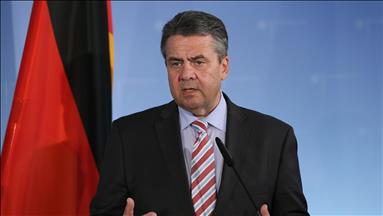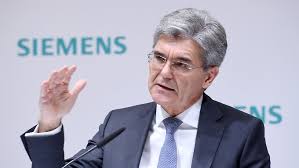Oil production grew 12% to 4.4 million bpd last year and is forecast to reach 5 million bpd by 2027
A stall at the Sadriya market in central Baghdad. The IMF urged Iraq to intensify efforts to grow its non-oil sectors. EPA
Iraq’s economic recovery is being supported by higher oil prices, but it remains vulnerable to shocks from market volatility, according to the International Monetary Fund.
Real gross domestic product was estimated to have increased 8 per cent in 2022, driven by a 12 per cent growth in oil production to 4.4 million barrels per day last year, the Washington-based fund said in a report on Friday.
Oil production is expected to further rise to 4.6 million bpd this year and 4.7 million bpd in 2024, to reach about 5 million bpd by 2027, the IMF said.
High oil prices are projected to produce fiscal and external current account surpluses for Iraq, Opec’s second-largest producer, the IMF said.
Real non-oil GDP growth, on the other hand, is expected to reach 4 per cent in 2023, up from 3.2 per cent last year, supported by stimulus measures from the country’s Emergency Law for Food Security and Development.
It will then settle at 3.5 per cent in the medium term, the fund said.
Inflation, meanwhile, was estimated at 4.5 per cent in 2022, and is forecast to ease to 3.7 per cent this year, further slowing to 2.5 per cent in 2024, the study showed.
“Iraq’s economy has been gradually recovering, supported by strong oil revenues and accommodative policies and the near-term outlook is positive amid a large oil windfall,” the IMF said.
However, while the economy’s near-term outlook is trending upwards, its dependence on oil and vulnerability to future crude price volatility have increased, the fund said.
“In the baseline of gradually declining oil prices, fiscal and external deficits and financing pressures could re-emerge in the medium term, barring significant reforms.”
Iraq, which also has the world’s 12th-largest proven gas reserves, depends on oil revenue to meet 90 per cent of government expenditure.
Its economy, however, remains fragile. Insecurity and political instability continue to discourage private investments, putting pressure on Baghdad to maintain a social compact based on government provision of jobs and subsidies which, in turn, are entirely dependent on oil revenue.
Iraq exported an average of about 3.6 million bpd in 2022, with an average price of $96.90 a barrel, the IMF said in its report.
Oil exports are projected to grow to 3.9 million bpd this year and rise to 4 million bpd in 2024, with average prices of $83.10 and $77.80 per barrel, respectively, it said.
Oil prices peaked in March 2022 nearly hitting $140 a barrel as Russia pressed ahead with its military offensive in Ukraine, but they have declined about 14 per cent in the past 12 months and around 42 per cent since March.
Oil prices settled lower on Friday, posting a second weekly loss and its lowest in three weeks.
Brent, the benchmark for two thirds of the world’s oil, fell 2.71 per cent to $79.94 a barrel at the close of trading on Friday. West Texas Intermediate, the gauge that tracks US crude, settled 3.28 per cent lower at $73.39 a barrel.
The IMF said that weak institutions and governance in Iraq have put a dent on its ability to use oil resources efficiently, as well as the government’s capacity to provide adequate public services.
Political polarisation and social discontent have also contributed to frequent episodes of policy paralysis, making it difficult to carry out deep structural reforms to diversify and modernise the economy, the report warned.
“The absence of meaningful reforms, in turn, has held back economic development and reinforced dependence on oil — a critical vulnerability in a world that is fighting climate change.”
A sound fiscal framework would allow to better manage Iraq’s oil wealth and reduce vulnerabilities in a highly uncertain global environment
International Monetary Fund
The IMF urged the government to speed up efforts to transform public financial management systems, boost non-oil revenues and reduce the oversized government payroll.
Authorities should also enhance the social safety net, improve the electricity sector’s efficiency and reduce corruption, it said.
Iraq’s central bank, meanwhile, should closely monitor domestic inflationary pressures, the IMF added.
Should these intensify, a tightening of domestic financial conditions by phasing out lending initiatives and raising interest rates and reserve requirements would help, it said.
“A sound fiscal framework would allow to better manage Iraq’s oil wealth and reduce vulnerabilities in a highly uncertain global environment,” the IMF said.
Iraq is also seeking to become a gas supplier to Germany, under closer energy ties being sought by both countries, German Chancellor Olaf Scholz said last month in discussions with Iraqi Prime Minister Mohammed Shia Al Sudani in Berlin.
It came as Iraq agreed a deal with German company Siemens Energy to upgrade the country’s power grid.
Source: The Nation News, February 05, 2023








Comment here